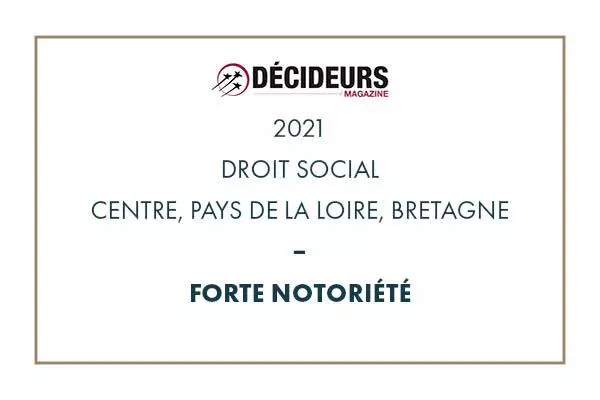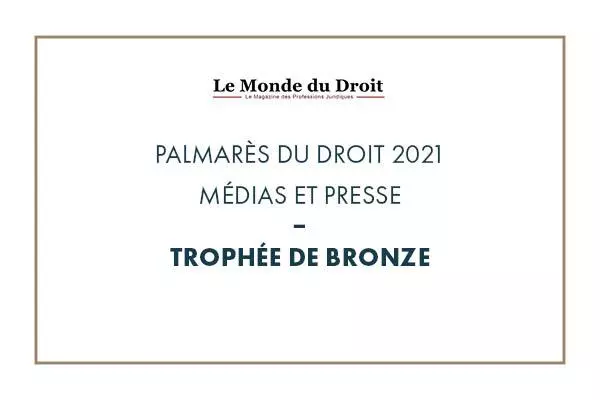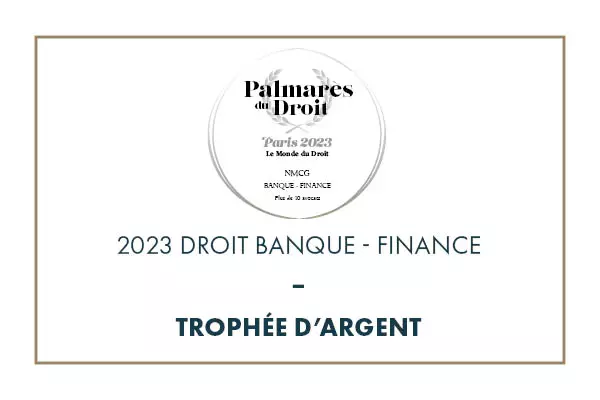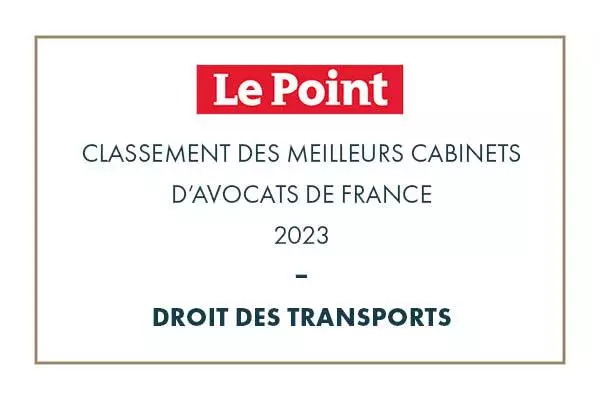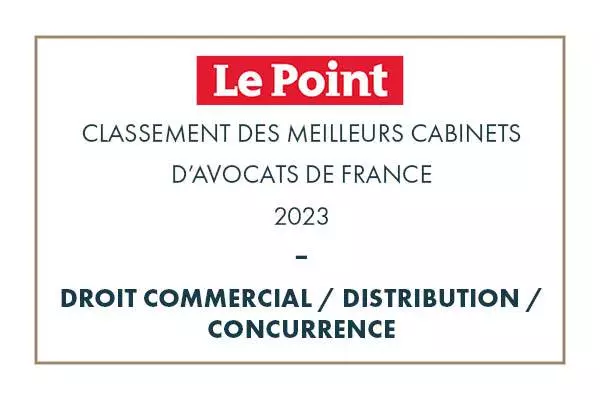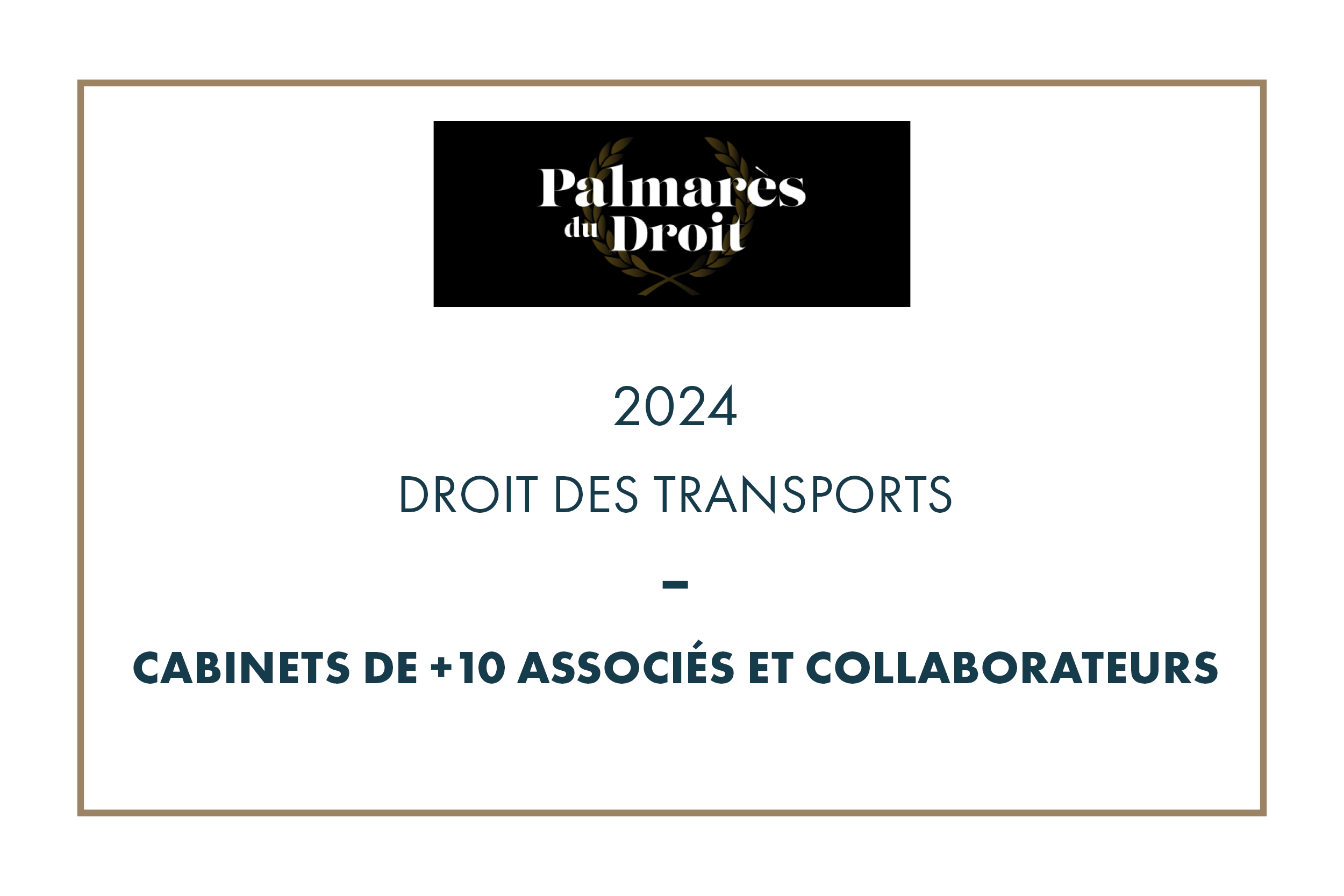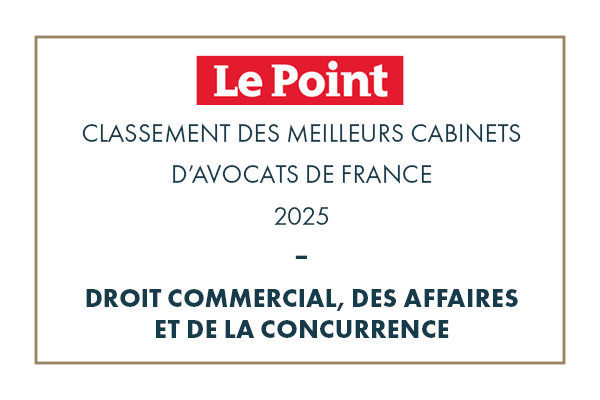Advance pricing: distinctions between prohibited and permitted practices
1 October 2022
The principle being that of the free determination of prices determined by competition, the practice of imposing a fixed or minimum selling price on an independent distributor is therefore in principle illegal.
However, the company at the head of a distribution network may advise its distributors on the selling price of its products and/or services.
A distinction should therefore be made between :
- the practice of advising a distributor of a fixed or maximum target resale price which is in principle lawful (I); and
- the practice of imposing a fixed or minimum resale price on a distributor which is in principle unlawful under the law of anti-competitive and restrictive practices (II).
I. The legality of recommended prices
Article 4 of the EU Vertical Agreements Regulation 330/2010 specifies that agreements that restrict “. the ability of the buyer to determine his selling price, without prejudice to the possibility for the supplier to impose a maximum selling price or to recommend a selling price, provided that they do not equate to a fixed or minimum selling price as a result of pressure or incentives by one of the parties “.
In other words, the supplier company has the possibility to set a maximum resale price for the products it supplies, or to recommend selling prices to its distributors.
The “recommended price” is a price recommended by the supplier that distributors can decide to apply without fear of being accused of resale at a loss or price fixing.
In any case, distributors must be able to do so without fear of commercial reprisals from their supplier (loss of price advantages or other compensations).
The definition and mention of recommended prices is not in itself unlawful, regardless of the form used. It may, for example, take the form of pre-labelled products or catalogue prices.
With regard to the pre-labelling or computerised pre-referencing of products in the checkout tools, the price will remain recommended as long as the retailer retains the possibility of changing the labels or modifying the pre-recorded price elements by simple manipulation.
Furthermore, with regard to the prices indicated on the website of a franchise network, it is a common rule that the franchisor always determines the online sales price.
There is no difficulty on this point if the franchisor is the author of the sale and delivers directly to the consumer.
However, when it offers a “click and collect” option If the product is “in the outlet of a franchisee and the product comes from the stock of the franchisee, a mechanism for compensating the difference between the online price and the price charged by the franchisee may be provided for between franchisor and franchisee in accordance with their respective economic considerations.
In conclusion, a supplier can always impose maximum resale prices on its distributors and advise them on resale prices in order to ensure price consistency within the network vis-à-vis consumers. But a supplier can never force its distributors to respect these resale prices.
II. The illegality of price fixing
The distinction between recommended and fixed prices is not always easy.
On this point, the Competition Authority and case law generally consider that resale prices are imposed when three cumulative conditions are met:
- communication to the distributor of retail prices (evocation of recommended prices) ;
The mention of price is the first element common to recommended pricing practices that can lead to fixed prices.
- setting up of a price police by the supplier, sanctioning distributors who do not apply the recommended prices (threat of reprisals, delisting, etc.);
This may, for example, be the result of the practice of the supplier’s sales agents approaching distributors to ask them to raise prices that are considered too low in relation to the recommended prices.
This condition can also be characterised by distributors who would themselves denounce to the supplier those resellers who did not respect the mentioned prices in the expectation that the supplier would react so that the prices would go up.
- meaningful and uniform application of the supplier’s prices by the network’s distributors.
The implementation of this price police and the threat – or even the application – of sanctions often leads to the uniform observance of ‘recommended prices’, which consequently turn into ‘fixed prices’.
As a reminder, such a practice is likely to constitute a restrictive practice of competition within the meaning of Article L.442-6 of the Commercial Code, which punishes with a ” a fine of €15,000 if any person directly or indirectly imposes a minimum on the resale price of a product or good, the price of a service or a trading margin “.
The practice of fixed prices may, moreover, constitute a cartel or be considered an abuse of a dominant position and, as such, be prohibited as an anti-competitive practice.
Such price maintenance practices may, however, benefit from the individual exemption provided for in Article 101(3) TFEU or Article L.420-4 of the French Commercial Code, where the cumulative conditions laid down in those articles are met:
- evidence of efficiency gains,
- the necessity and proportionality of the restriction of competition,
- a pass-through of profits to end-users,
- the absence of elimination of any competition in the market.
CONCLUSION, RECOMMENDED PRICES YES, IMPOSED PRICES NO!
The NMCG teams are at your disposal to implement the distribution network that meets your needs.






